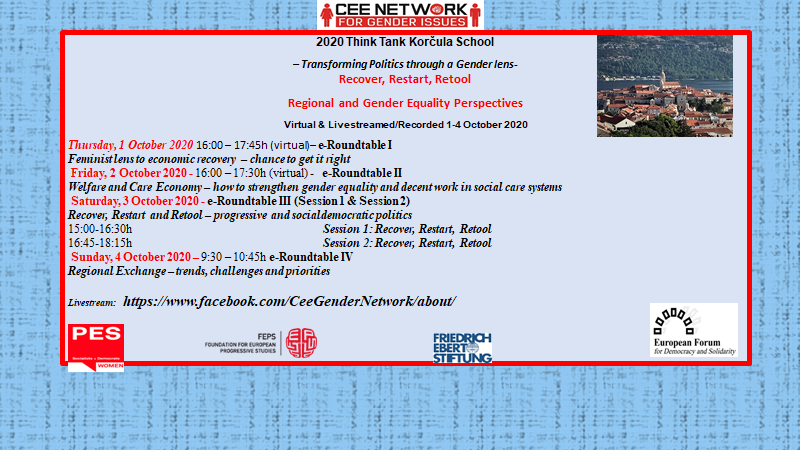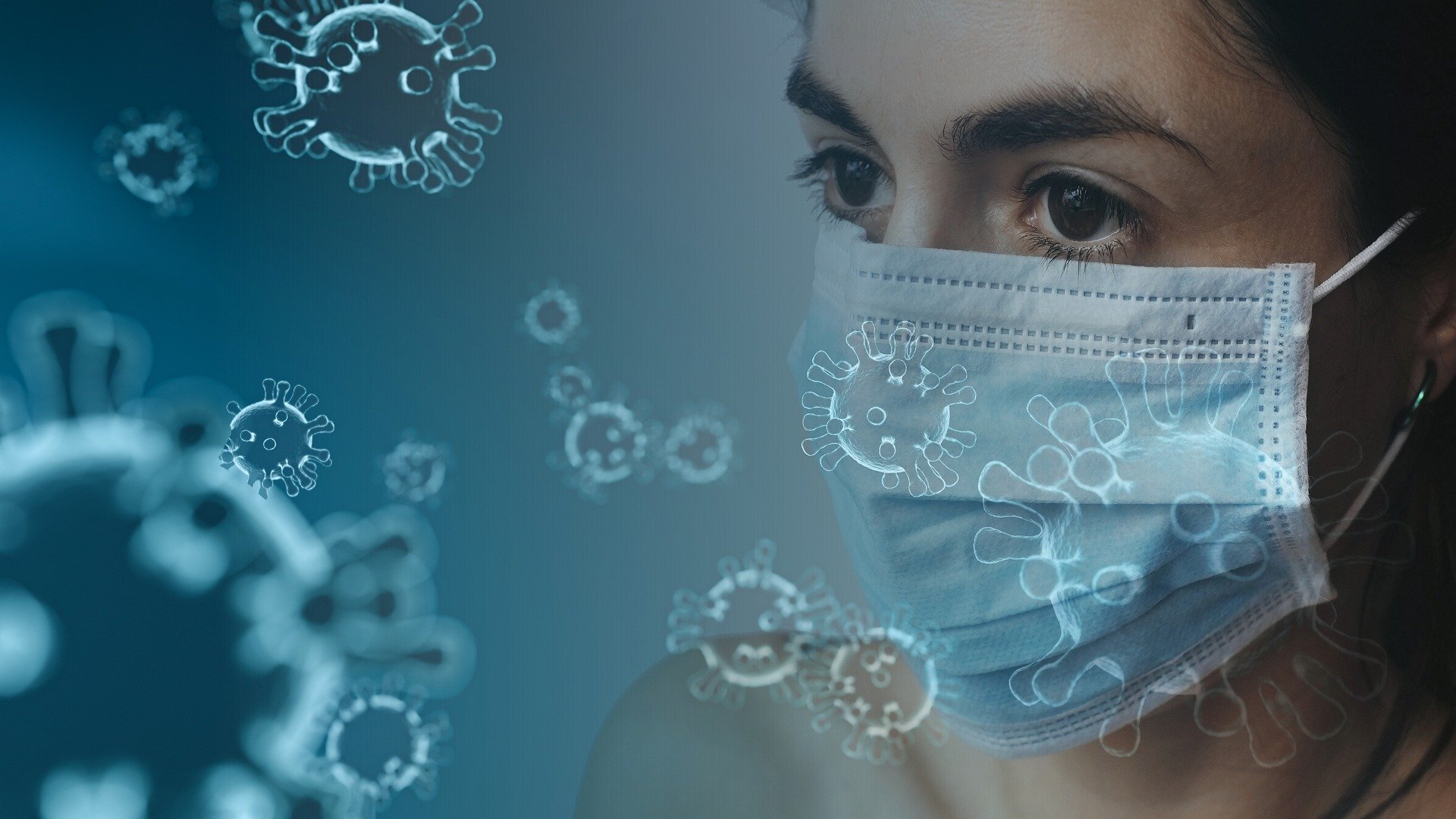Join the signatories of our call for Global Solidarity / Vaccines are a Public Good.
https://progressive-alliance.info/2021/02/24/signatories-call-globalvaxsolidarity/
10. prosinca dodijeljena nagrada SILVER ROSE
Od 2000. Godine fondacija SOLIDAR, okupljena oko europskih Socijalista i Demokrata (S&D), na prijedlog organizacija civilnog društva dodjeljuje godišnju nagradu za promoviranje socijalnih vrijednosti u Europi i svijetu. Nagrade primaju organizacije civilnog društva, kao i pojedinci čija zalaganja i aktivnosti značajno doprinose promoviranju društvene pravde i solidarnosti.
Ove godine je jedna od dobitnica Daša Šašić Šilović iz Zagreba i to u kategoriji “Zajedno za socijalnu Europu”. Uručivanje nagrada održat će se online, na Međunarodni dan ljudskih prava.
Oporavak, novi početak, prilagodba
Regionalne perspektive i perspektive rodne ravnopravnosti
1.- 4. listopad 2020.
CEE Network is inviting you to join the newest session of Vračarski razgovori called "Democracy and I gladly remember it" moderated by our Board Member Tamara Tripić on Wednesday, 29 April from 7PM. Stream will be avaliable on our Facebook page also.
FOSDI (Belgrade) & the CEE Network for Gender Issues are inviting you to participate in the online pandel debate “Human Security and Safety in a State of Emergency”.
The debate will be held on Friday, April 10th 2020 from 5 p.m. to 7 p.m. (Budapest time) via Zoom app.
Keynote speakers are: Ms Daša Šašić Šilović (Croatia), Ms Solveig Cogliani (Italy), Prof. Dragana Broz (Italy, Serbia).
Regarding the current situation with the rising pandemic of coronavirus in the world, CEE Network for Gender Issues issued a newsletter entirely devoted to coronavirus.
You can read it here.
CEE Network for Gender Isuess Chair Daša Šašić Šilović has been elected for the President of the European Partners for Environment (EPE).




